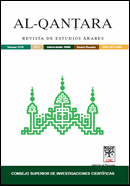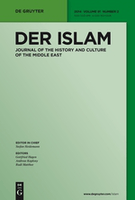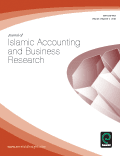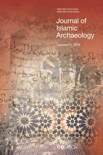
Journal of College of Sharia and Islamic Studies
Scope & Guideline
Exploring the Depths of Islamic Jurisprudence
Introduction
Aims and Scopes
- Islamic Jurisprudence and Law:
The journal extensively covers topics related to Islamic jurisprudence (fiqh), exploring traditional and contemporary interpretations of Sharia law. This includes critical analyses of legal rulings, comparisons with secular laws, and discussions on modern legal issues. - Cultural Studies and Islamic Thought:
Scholarly contributions often delve into the cultural dimensions of Islam, examining how Islamic thought interacts with societal issues, including education, governance, and interfaith relations. - Historical and Textual Analysis:
The journal publishes rigorous historical studies and textual analyses of Islamic texts, contributing to the understanding of classical works and their implications in the modern world. - Interdisciplinary Approaches:
Research often adopts interdisciplinary methodologies, integrating perspectives from sociology, anthropology, and law to provide a holistic view of Islamic studies. - Contemporary Issues and Challenges:
The journal addresses contemporary challenges facing Muslim communities, such as issues of identity, extremism, and the role of Islam in modern governance, thereby contributing to relevant and timely discussions.
Trending and Emerging
- Islam and Modernity:
An increasing number of articles explore the relationship between Islamic teachings and modern issues, such as technology, finance, and healthcare, highlighting the relevance of Islamic law in contemporary contexts. - Comparative Jurisprudence:
There is a growing trend towards comparative studies that analyze Islamic law in relation to other legal systems, which enriches the discourse on legal pluralism and the applicability of Sharia in diverse contexts. - Cultural and Educational Reform:
Research focusing on the reform of Islamic education and cultural courses is on the rise, reflecting a commitment to enhancing Islamic scholarship's relevance in contemporary educational frameworks. - Interfaith Dialogue and Relations:
Papers addressing interfaith dialogue and the relationship between Islam and other religions are increasingly prevalent, indicating a desire for greater understanding and collaboration in a multicultural world. - Contemporary Ethical Issues in Islamic Law:
There is an emerging focus on ethical dilemmas faced by Muslim communities today, such as bioethics and environmental issues, underscoring the need for a contemporary Islamic ethical framework.
Declining or Waning
- Traditionalist Interpretations:
There is a noticeable decrease in papers focusing solely on traditionalist interpretations of Islamic texts without engaging with contemporary issues. This shift suggests a move towards more dynamic and relevant discussions. - Occidentalism Studies:
Themes related to Occidentalism, while previously prominent, seem to be waning, possibly due to a saturation of the discourse or a shift in focus towards more pressing issues within the Islamic world. - Historical Contextualization of Islamic Practices:
Research that exclusively emphasizes the historical context of Islamic practices without linking them to present-day applications has become less common, indicating a preference for studies that connect past and present.
Similar Journals

AL-QANTARA
Exploring Interdisciplinary Insights in the Humanities.AL-QANTARA, published by the Consejo Superior Investigaciones Cientificas (CSIC), is a prestigious academic journal that has been at the forefront of interdisciplinary research in the fields of Cultural Studies, History, and Literature and Literary Theory since its inception in 1984. Renowned for its commitment to open access since 1996, the journal promotes a comprehensive understanding of the interconnectedness of cultural narratives and historical discourse, making it an invaluable resource for researchers and students alike. With impressive rankings in Scopus—including a top placement in the Q1 category for Literature and Literary Theory and Q2 in both Cultural Studies and History—AL-QANTARA effectively bridges theoretical insights with empirical research, contributing to robust academic dialogue and innovation. Operating out of Madrid, Spain, it stands as a pillar of scholarly excellence, offering a platform for diverse voices in the humanities to share their findings and engage with critical contemporary issues.

ISLAM-ZEITSCHRIFT FUR GESCHICHTE UND KULTUR DES ISLAMISCHEN ORIENTS
Bridging Cultures Through Rigorous Historical AnalysisISLAM-ZEITSCHRIFT FUR GESCHICHTE UND KULTUR DES ISLAMISCHEN ORIENTS, with ISSN 0021-1818 and E-ISSN 1613-0928, is a prestigious academic journal published by Walter de Gruyter GmbH based in Germany. With a rich history dating back to 1910 and a dedicated focus on the cultural and historical insights of the Islamic Orient, this journal serves as a vital platform for scholars around the globe. It is recognized in the Q2 quartile in both Cultural Studies and History, reflecting its high-impact contributions to the field. The journal features rigorous peer-reviewed articles, making significant advancements in understanding Islamic culture and history. Notably, it holds commendable Scopus Ranks, placing it in the top 65th percentile for History and the 53rd percentile for Cultural Studies. Researchers, professionals, and students interested in the complexities of Islamic heritage will find this journal indispensable for its depth of analysis and breadth of scholarship. While it currently does not offer Open Access, its comprehensive resources are crucial for academic research in these historically rich fields.

Al-Jamiah-Journal of Islamic Studies
Cultivating Excellence in Islamic Academic InquiryAl-Jamiah: Journal of Islamic Studies is a distinguished scholarly journal published by Sunan Kalijaga State Islamic University in Indonesia. Established as an Open Access publication since 2005, it aims to foster the dissemination of knowledge in the field of Islamic studies, catering to a diverse audience of researchers, professionals, and students interested in the rich tapestry of Islamic culture, religion, and thought. With an impressive Q1 ranking in Religious Studies and a Q2 ranking in Arts and Humanities for 2023, the journal stands out as a vital resource with high visibility and impact, holding a prestigious position in Scopus ranks—40th out of 644 in Religious Studies and 12th out of 173 in General Arts and Humanities. Al-Jamiah's commitment to academic excellence is reflected in its rigorous peer-review process, ensuring the publication of high-quality research. Based in Yogyakarta, Indonesia, the journal welcomes contributions that explore innovative perspectives and interdisciplinary approaches to contemporary issues affecting the Islamic world.

Journal of Islamic Accounting and Business Research
Leading the Charge in Islamic Financial Scholarship.The Journal of Islamic Accounting and Business Research, published by EMERALD GROUP PUBLISHING LTD, is a leading academic journal dedicated to advancing the field of Islamic accounting and business practices. With its ISSN 1759-0817 and E-ISSN 1759-0825, this journal has established itself as a vital source of scholarly articles from 2010 to 2024, focusing on the integration of Islamic principles within contemporary business and accounting frameworks. Placed in varied quartiles across multiple categories in 2023—Q3 in Accounting and Strategy and Management, and Q2 in Business and International Management—this journal recognizes the dynamic intersection of Islamic economics and modern business theories. Situated in the United Kingdom, it plays a crucial role in supplying researchers, professionals, and students with cutting-edge insights and empirical findings, ensuring that it remains at the forefront of the discourse in its field. Furthermore, with impressive Scopus rankings, it stands out as a key resource for those seeking to explore the complexities and advancements in Islamic financial practices and business strategies.

Miscelanea de Estudios Arabes y Hebraicos-Seccion Arabe-Islam
Elevating Research in Arabic and Hebrew InteractionsMiscelanea de Estudios Arabes y Hebraicos-Seccion Arabe-Islam is a distinguished academic journal dedicated to the study of Arabic and Islamic studies, published by UNIV GRANADA, EDITORIAL. With an ISSN of 1696-5868 and E-ISSN 2341-0906, this publication provides a vital platform for scholars and researchers interested in the deep historical, cultural, and linguistic connections between the Arab and Hebrew worlds. Situated in the heart of Granada, Spain, this journal aims to promote interdisciplinary approaches and foster dialogue among academics in these rich fields of study. Although it operates under traditional access protocols, the journal’s commitment to quality is reflected in its rigorous peer-review process, making it a valuable resource for researchers, professionals, and students alike. By engaging with cutting-edge research and critical perspectives, the journal plays an essential role in enhancing the understanding of Arabic and Islamic heritage today.

Global Journal Al-Thaqafah
Advancing cultural discourse through open access.Global Journal Al-Thaqafah is a distinguished open-access journal published by UNIV SULTAN AZLAN SHAH, dedicated to advancing knowledge and research in the fields of arts, humanities, and cultural studies. Since its inception in 2011, this journal has provided a valuable platform for scholars and practitioners to disseminate their findings, fostering dialogue and interdisciplinary collaboration. Based in Malaysia, it serves a global audience, bridging gaps in cultural discourse and contributing to the understanding of diverse cultural phenomena. With its current status in the Q3 quartile of the Arts and Humanities (Miscellaneous) and Cultural Studies categories, the journal is recognized for its impactful contributions to these fields. The open-access model allows for unrestricted access to research, encouraging wider engagement and dissemination of knowledge. Researchers, professionals, and students alike will find in the Global Journal Al-Thaqafah a vital resource for contemporary cultural studies and a beacon for future research directions.

International Journal of Islamic Thought
Exploring Contemporary Interpretations of Islamic ThoughtInternational Journal of Islamic Thought is a leading scholarly publication, dedicated to advancing knowledge and understanding in the fields of Islamic studies. Published by UNIV KEBANGSAAN MALAYSIA, FAC SCIENCE & TECHNOLOGY, this journal is positioned as an essential resource for researchers, professionals, and students alike, striving to explore and disseminate contemporary thoughts and interpretations within the Islamic intellectual tradition. With an impact factor indicative of its quality—ranking Q2 in Arts and Humanities and Q3 in Social Sciences as of 2023—the journal provides a robust platform for interdisciplinary discourse. Since its inception, the journal has embraced an open access model, ensuring that research is readily available to a global audience, thereby fostering further inquiry and collaboration. Hailing from Malaysia, the journal's commitment to contributing to both the local and international scholarly communities is underscored by its impressive standing in the Scopus rankings, reflecting its growing influence and reach in the academic landscape.

Bilimname
Cultivating Knowledge Across Disciplines of Faith and SocietyBilimname is a distinguished academic journal published by the ILAHIYAT BILIMLERI ARASTIRMA VAKFI, dedicated to advancing knowledge in the fields of Islamic studies, theology, and social sciences. With its E-ISSN: 2148-5860, this open-access journal provides a platform for researchers, scholars, and students alike to publish and share innovative ideas and groundbreaking research. While specific metrics such as H-Index and Scopus ranks are currently unavailable, Bilimname continues to foster academic discourse and engagement, making it an essential resource for individuals keen on exploring contemporary issues within its scope. Located in Kayseri, Turkey, the journal aims to bridge theoretical insights with practical applications, thereby contributing significantly to the academic community and shaping future research in relevant disciplines.

Al-Shajarah
Navigating the Rich Tapestry of Islamic ThoughtAl-Shajarah is an esteemed academic journal that serves as a vital platform for scholarly discourse in the fields of Cultural Studies, History, Philosophy, and Religious Studies. Published by the International Islamic University Malaysia and the International Institute of Islamic Thought and Civilization, the journal reflects a profound commitment to advancing understanding and dialogue surrounding Islamic thought and its place in modern society. With an ISSN of 1394-6870 and an evolving publication history since its convergence in 2011, Al-Shajarah offers valuable insights that cater to a broad array of readers, from seasoned researchers to emerging academics. The journal's rigorous peer-review process and commitment to cultural and religious scholarship are underscored by its categorization in the Q3 and Q4 quartiles in critical academic fields, and its Scopus rankings demonstrate its relevance within the global academic landscape. While open access is not currently available, Al-Shajarah remains a crucial resource for those seeking to enrich their understanding of Islamic civilizations and philosophy, providing access to pioneering research that shapes the conversation within these disciplines.

Journal of Islamic Archaeology
Connecting Cultures Through Archaeological InsightsJournal of Islamic Archaeology is a distinguished publication dedicated to advancing the field of archaeology through the lens of Islamic heritage and culture. Published by EQUINOX PUBLISHING LTD, this journal provides a platform for researchers, professionals, and students to disseminate their findings and engage in critical dialogue regarding the archaeological aspects of Islamic societies from 2014 to the present. With an ISSN of 2051-9710 and E-ISSN 2051-9729, the journal is indexed within significant academic databases and positioned notably in the Q3 and Q2 quartiles for archaeology in the Arts and Humanities and Social Sciences categories, respectively. The journal fosters scholarly exchange and innovation, drawing attention to the rich tapestry of Islamic archaeology, and securing its role as an essential resource for practitioners and academics alike. Its commitment to rigorous peer-review and high-quality contributions ensures a valuable repository of knowledge, enhancing the understanding of an often underrepresented field in archaeology.